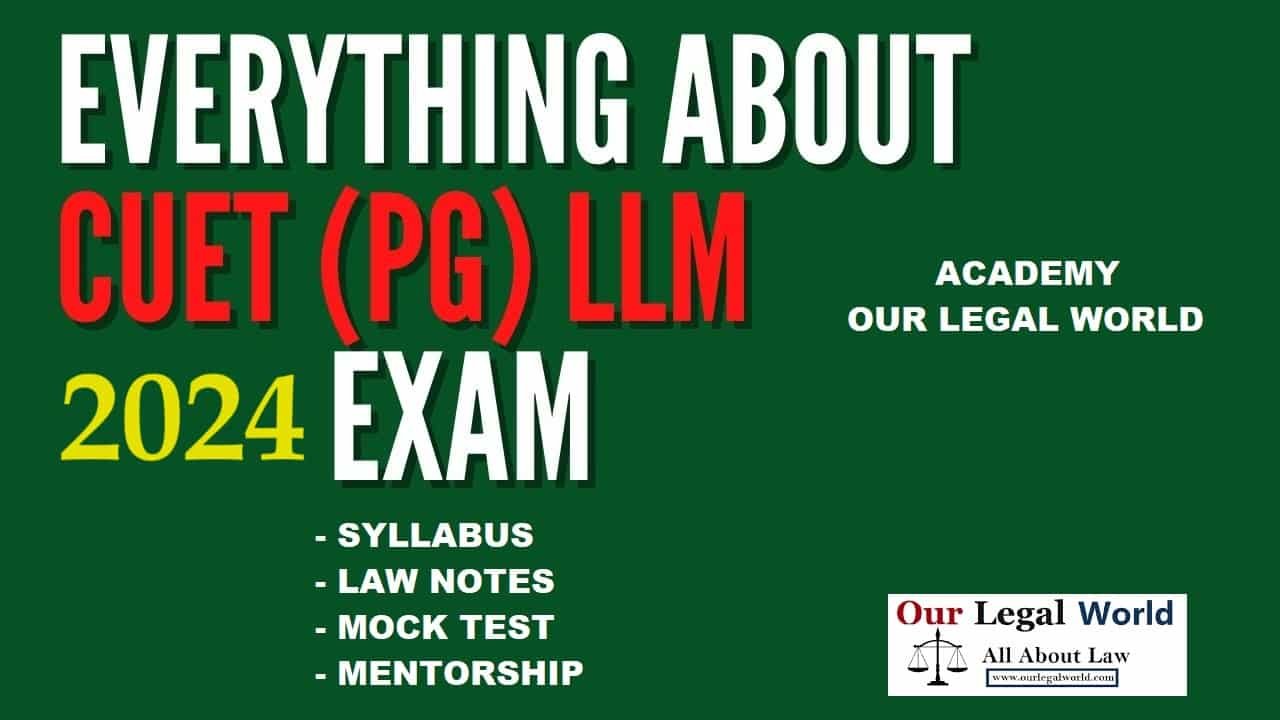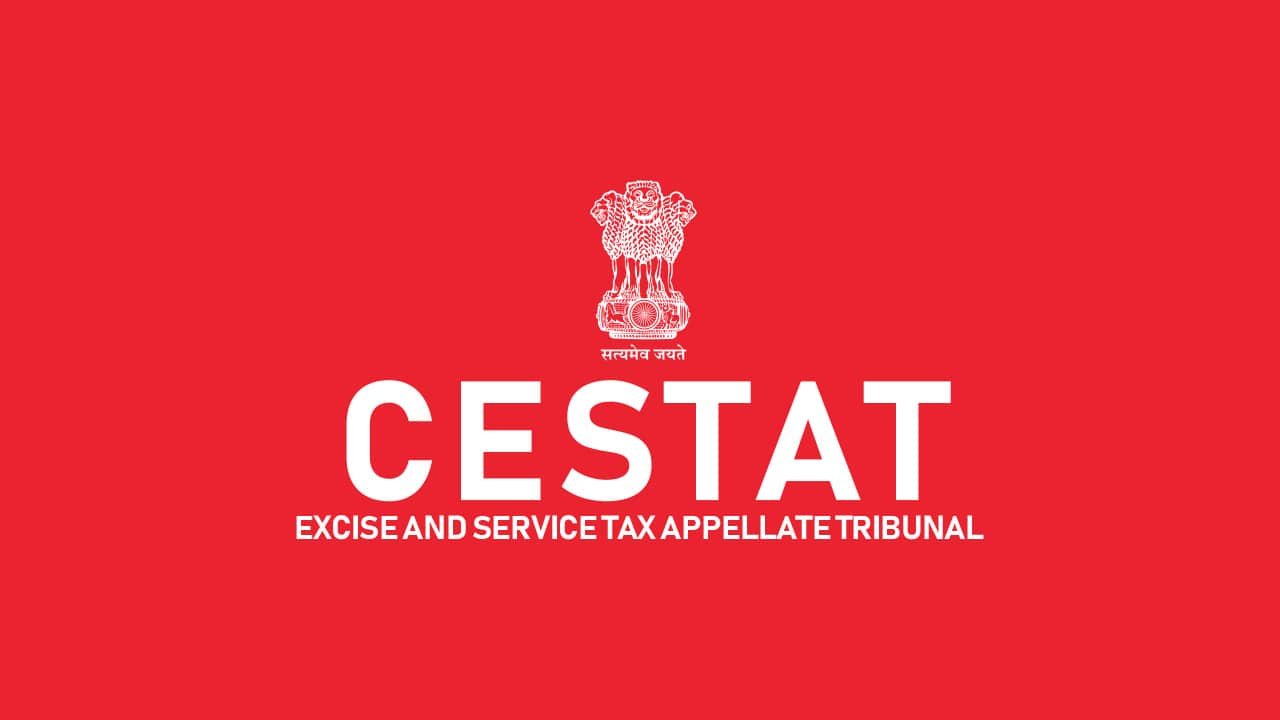CUET PG LLM Syllabus 2024: Subject-Wise Syllabus Details
CUET PG LLM Syllabus
Note:
i. The Question Paper which will have 75 questions.
ii. All questions will be based on Subject-Specific Knowledge.
iii. All questions are compulsory.
iv. The Questions will be Bilingual (English/Hindi)
Candidates are tested on the following subjects from the CUET LLM syllabus 2024:
- General Principles of Contracts
UNIT I – History – Formation of Contract – Agreement and Contract – Definitions – Classification ‐ Offer
and Acceptance – Communication – Revocation – Essential elements – Invitation to Offer – Tenders.
Consideration – Nudum Pactum ‐ Essential elements – Privity of Contract and of Consideration –
Exceptions – Unlawful Consideration and its effect. Contractual Ability – Electronic Documents as Web
Pages – Digital Certificates as Entry Passes – Time and Place of Contract – Secured Custody of Electronic
Records.
UNIT II – Capacity to Contract – Minor’s Agreements and its effects – Persons of unsound mind –
Persons disqualified by Law. Free Consent – Coercion ‐ Undue influence – Misrepresentation – Fraud –
Mistake – Legality of Object – Void Agreements – Agreements against Public Policy – Wagering
Agreements – Its exceptions – Contingent Contracts.
UNIT III – Discharge of Contracts and its various Modes – by performance – Time and place of performance Performance of reciprocal promises ‐ Appropriation of Payments – Discharge by Agreement – By operation of Law – By frustration (Impossibility of Performance) – By Breach (Anticipatory and Actual).
UNIT IV – Remedies for Breach of Contracts – Damages – Remoteness of damages – Ascertainment of
damages ‐Injunction – When granted and when refused– Restitution – Specific performance when granted
Quasi Contracts.
UNIT V- The Specific Relief Act Nature of Specific Relief – Recovery of Possession of movable and
immovable Property – Specific performance when granted and not granted – Who may obtain and against
whom – Discretionary remedy – Power of Court to grant relief – Rectification of instruments – Cancellation
Declaratory decrees – Preventive relief – Temporary injunctions – Perpetual and Mandatory Injunctions.
Government as a contracting party: Constitutional provisions – Government powers to contract – Procedural requirements – Kinds of Government Contracts, their usual clauses, performance of such contract, settlement of disputes and remedies.
Also Read: CLAT PG LLM Entrance Exams Notes
- Contract II
- Constitution
UNIT I –Salient Features of the Indian Constitution, Preamble, Citizenship, Fundamental Rights.
UNIT II – Directive Principles of State Policy, Fundamental Duties, Parliamentary Government, Bicameralism, Legislative Process, Privileges, Council of Ministers, President of India, Governor.
UNIT III –Judicial process under the Constitution, Nature of Judicial Review, Judicial Review Arts.32, 226 and 227, Court system in India, Judges‐ Appointments, conditions of service, etc., Advisory
Jurisdiction of the Supreme Court, Public Interest Litigation, Activism v. Restraint.
UNIT IV – Federalism, Center‐State Relations, Freedom of Inter State Trade, Methods of Constitutional
Amendment, Limitation on Constitutional Amendment.
UNIT V – Emergency provisions, Services under the State, State Liability.
- Law of Torts
UNIT‐I Evolution of law of torts‐ Nature and scope of law of torts; Meaning; Torts distinguished from
Contract; Crime‐ Development of Ubi jus ibis Remedios; Mental elements Intention, Motive, Malice in Law
and in Fact.
UNIT‐II General Defense, Vicarious Liability.
UNIT‐III Negligence; Nuisance; Absolute and Strict liability. Legal Remedies‐Awards‐Remoteness of
damage.
UNIT‐IV Torts against person: Torts affecting body‐ Assault, Battery, Mayhem and False Imprisonment;
Torts affecting reputation‐Libel and Slander, Torts affecting freedom Malicious Prosecution, Malicious
Civil Action and Abuse of Legal Process; Torts affecting domestic and other rights‐Marital Rights, Parental
Rights, Rights to Service, Contractual Rights, Intimidation and Conspiracy; Torts against property.
UNIT‐ V Consumer Protection Act, 1986
- Indian Penal Code
- Family Law: Hindu law
- Family Law –II: MOHAMMEDAN LAW AND INDIAN SUCCESSION ACT
- Criminal law
- Criminal Law –II: CRIMINAL PROCEDURE CODE, 1973, JUVENILE JUSTICE (CARE AND PROTECTION OF CHILDREN) ACT, 2000 AND PROBATION OF OFFENDERS ACT, 1958.
- Company law
- Property law
- Alternative Dispute Resolution
- Environmental law
- Labour Law
- Jurisprudence
- Public international law
UNIT‐I Nature, definition, origin and basis of International Law; Sources of International Law; Relationship
between Municipal and International Law; Subjects of International Law.
UNIT‐ II States as subjects of International Law: States in general; Recognition; State territorial
sovereignty.
UNIT –III State Jurisdiction: Law of the sea; State Responsibility; Succession to rights and obligations.
UNIT – IV State and Individual ‐ Extradition, Asylum and Nationality; the agents of international business;
diplomatic envoys, consuls and other representatives; the law and practice as to treaties.
UNIT – V United Nations Organization ‐ Principal organs and their functions; World Trade Organization‐
Main features; International Labor Organization.
- Human rights law and practice
- Right to Information
- Banking law
- Insurance Law
- Administrative law
UNIT – I Evolution‐ Nature and Scope of Administrative Law‐ Relation with Constitutional Law
Separation of powers and concepts‐ Rule of law‐ Counsil d’ Etate, (French system) ‐ Classification of
Administration Action‐ functions‐ Administrative direction and discretion.
UNIT –II Legislative power of the administration‐ Extent of delegation and control over delegated
Legislation‐ Sub‐delegation‐ Judicial‐ Parliamentary control over delegated Legislation.
UNIT ‐ III Judicial power of Administration‐ Nature of procedure‐ Principles of Natural justice Effect of
non‐ compliance with principles of Natural Justice‐ Exception to principles of Natural Justice.
UNIT – IV Judicial control of administrative action – Writs, Principles and Procedure ‐ Public Law Review
and Private Law Review of Administration action‐ Liability of State – Torts, Contract‐ Promissory Estoppel‐
Government Privileges‐ Right of information‐ Doctrine of Legitimate expectation‐ Doctrine of
Accountability‐ Waiver‐ Doctrine of Proportionality.
UNIT –V Corporations and Public undertaking‐ Commission of Enquiry‐ Ombudsman in India (Lokpal
and Lokayuktha) ‐ Central Vigilance Commission‐ Parliamentary Committees Civil Services in India‐
Accountability and responsibility‐ Problems and Prospective Administrative deviance‐ Corruption‐ Mal‐
administration‐ Control mechanism of Accountability.
- Civil procedure code & Limitation act
- Intellectual Property Rights
- Intellectual Property Rights- II
- Penology and Victimology
- Interpretation of Statutes & Principles of Legislation
- Competition Law
- Law of evidence
- Taxation
- White Collar Crimes
- Women and Criminal Law & Law Relating to Child
- International Trade
- Clinical Course-I: PROFESSIONAL ETHICS AND PROFESSIONAL ACCOUNTING SYSTEM


![Jamia Hamdard Mediation Competition 2025 at School of Law, HILSR [21st February 2025]](https://www.ourlegalworld.com/wp-content/uploads/2024/12/Screenshot-11-min-1.png)






